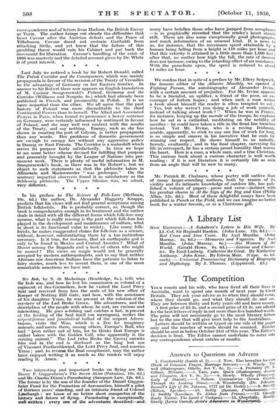' In his preface to The Science of Folk-Lore (Methuen,
10S. 6d.) the author, Dr. Alexander Haggerty Krappe, predicts that his views will not find general acceptance among British folklorists. He is probably correct, as, though the honk is comprehensive enough in its treatment and the author deals in detail with all the different forms which folk-lore may aceume, what is really missing is the part which folk-lore has played in the development and maintenance of culture, what iii`short is its functional value to society. Like many folk- loriits, he makes exaggerated claims for folk-lore as a science, 'without, however, substantiating them by a too meticulous accuracy. Is it true, for instance, that an earthquake god is Milji to be found in Mexico and Central America ? What of MUsisi among the Baganda and a host of others who might be named ? His views on magic would not be generally accepted by modern anthropologists, and to say that neither Africans nor American Indians have the patience to listen to fairy stories, much less to invent them, is one of the most remarkable assertions we have met.








































 Previous page
Previous page